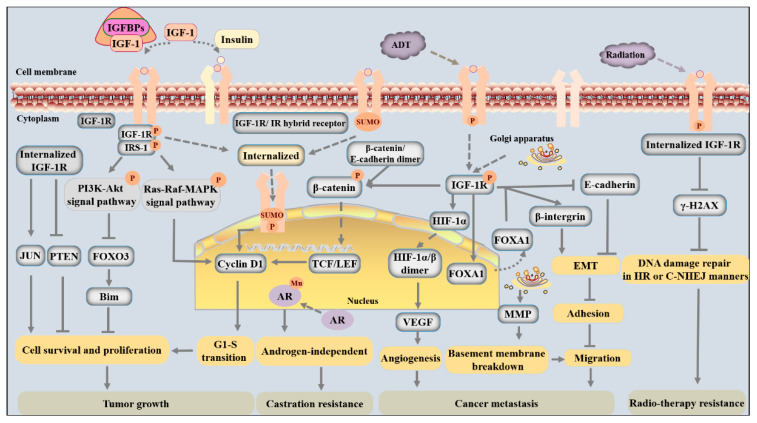Figure 2.
The detailed molecular mechanisms of activated IGF-1R in promoting cancer development and therapy resistance are schematically represented. IGF-1 exerts its biological functions via activating PI3K-Akt as well as Ras-MAPK signaling pathways via promoting phosphorylation and SUMOylation of its receptor IGF-1R. First of all, activated IGF-1R can promote survival and proliferation and inhibit apoptosis of cancer cells by regulating the expression of cell cycle proteins, oncogenes, and tumor suppressor genes, such as cyclin D1, JUN, and PTEN. Secondly, activated IGF-1R can induce angiogenesis in the tumor microenvironment by enhancing VEGF expression. It can also promote cancer cell migration via regulating cell adhesion-associated proteins, and then promoting EMT. In addition, IGF-1R can promote degradation of ECM components by stimulating MMP release. All these biological functions would enhance the ability of metastasis for cancer cells. Thirdly, IGF-1/IGF-1R would favor the progression of androgen-independent PCa due to stimulating nuclear translocation of AR and affecting the AR androgen-binding domain or phosphorylation status for mutation. Lastly, activated IGF-1R can promote DNA damage repair and radioresistance of cancer cells by inhibiting DNA damage-related proteins and promoting castration resistance for androgen receptor mutation.

